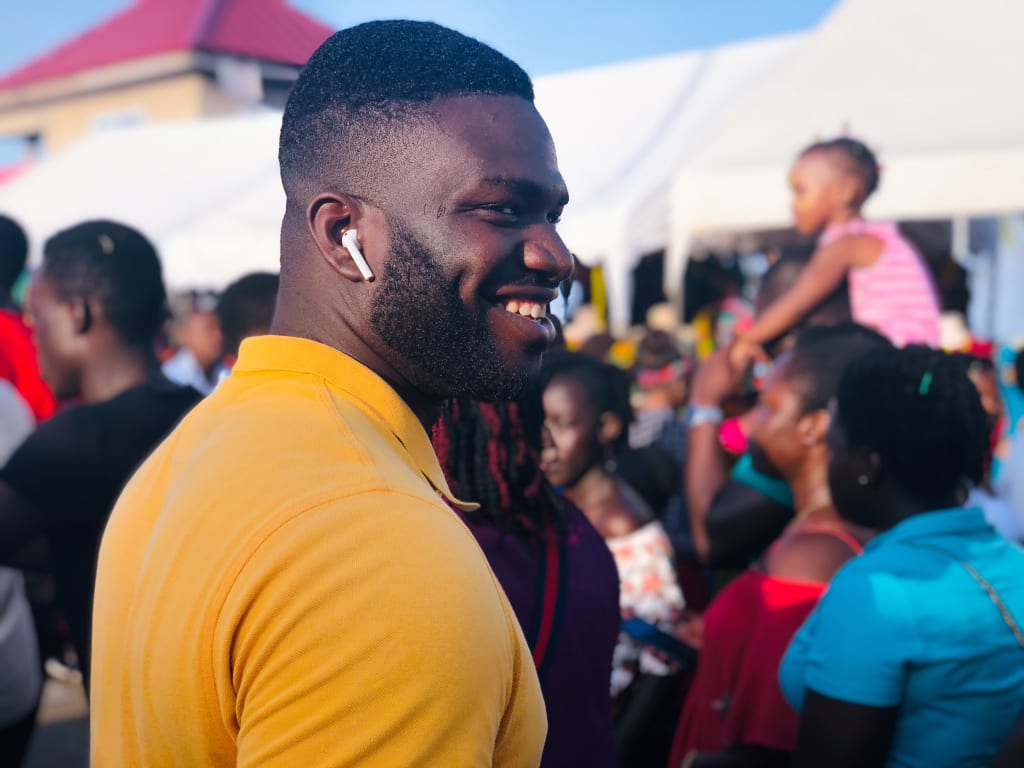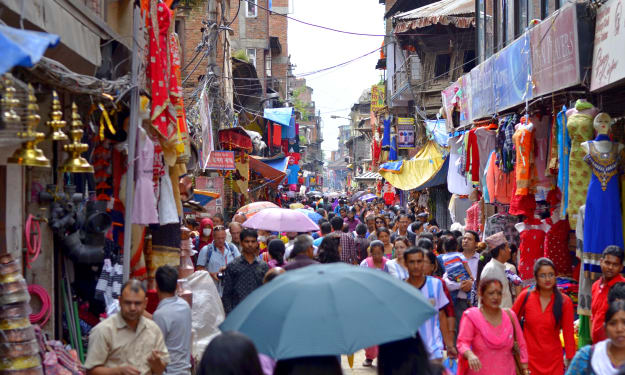
"Blofonyo!" My mother-in-law's greeting to me is full of affection and warmth. Her term of endearment literally means 'white person,' but has a whole other meaning when she speaks it. When she says it, I embrace the term, though it has a different connotation when I hear it on the street. People here are friendly, sometimes overly friendly, and I am used to attracting attention in Ghana. I hear the call 'Blofonyo' a dozen times, as I go shopping at the local market, or explore the restaurants and local shops. Among friends and family, the term becomes an inside joke. A close friend, and I jokingly refer to each other as 'Mordin,' and 'Blofonyo'–black and white respectively.
Sometimes the staring can get to me, though. As I wander around Teshie, the neighborhood in Accra (the capital city) where my husband is from, I attract stares, and looks of amazement. Some people grab my arm as I am walking. I start to feel like an alien that has just descended from a UFO. My husband teaches me a retort in Ga (his local language). "Meni, onako blofonyo dan?" Which means, "What, you've never seen a white person before?" When I start speaking the local language, people look even more amazed, and move along quickly, perhaps afraid that I will start telling them off in their language.
In other parts of Accra, and in Cape Coast, where I live, my name switches from Blofonyo to Obroni. Ghana is made up of numerous tribes, and over 200 languages are spoken. Twi (which is mainly spoken in parts of Accra) and Fanti (spoken in Cape Coast) are similar, and I am Obroni in both languages. I learn short phrases in both Twi and Fanti, and use them liberally. This is a good way to avoid obroni prices at the market, and with taxi rides. Once people think you know the language, and the culture, they stop trying to increase the price. I have to be careful not to use too much of the local language, or people will start believing I can speak the language fluently, and I will find myself desperately trying to follow along as they rattle off an extended monologue, trying to have an in-depth conversation. I make sure to bring my husband along most places, so he can act as an interpreter. Compared to my measly language abilities, he is adept at picking up different languages, and can usually remember short phrases after only hearing them once. While he doesn't know all the tribal languages, he can speak several, as well as French and English.
It is worth noting that English is the official language of Ghana, and most people in the cities can speak it. In rural areas, people mainly speak their own tribal language, unless their area contains a big tourist attraction. Ghana has a number of multinational companies, and most educated people are used to working with foreigners from Europe, and parts of the Middle East. I attract no attention at my workplace (a clinic at Cape Coast University, one of the largest universities in Ghana), or in the malls or large shopping centers. The expat community is large, and is primarily made up of British, German, Lebanese, and Indian communities. There are also a number of Americans, and I meet several during my time in Ghana.
In addition to the expat communities, summer and winter holidays bring a large number of German teenagers doing volunteer work. They flood the resorts and beaches, trying out the local food, and usually being surrounded by swarms of Ghanaian children eager to show them the local attractions. Many of them go to help out at the local schools, and I meet several when I visit some of the schools to give health presentations.
Despite the large number of expats, I often find myself being the only blofonyo at church, or while out on the street. I have to confess that the sight of another foreigner in a more rural area also gives me a slight feeling of amazement. I sometimes forget that I am not the only expat. Coming from a country where I am part of the majority, it is an interesting feeling to become a minority. I especially notice it when those around lapse into their tribal language, and I am left twiddling my thumbs, and concocting imaginary conversations in my head. But, mostly, I become used to being the foreigner, the blufonyo, and the obroni. As a reserved person, I struggle with becoming the attraction at events, like shaking the players' hands at a local soccer game, or being asked to speak or meet new people. But I make my peace with it. Over time, Ghana becomes part of me, even though in some aspects I remain on the fringes. It changes a part of who I am, leaving its mark on me, as I, in a small way, leave my mark on Ghana. And perhaps that is what travel is. Changing, and being changed, so that you are never truly the same person when you return. And, in some ways, becoming the foreigner at home, changing home as you yourself have been changed.
About the Creator
Jenny Beck
I am a chiropractor, health advocate and advocate for the Deaf and Hard of Hearing community. I love to travel and spent several years working overseas in Indonesia and Ghana. @aslchiro- Instagram






Comments
There are no comments for this story
Be the first to respond and start the conversation.